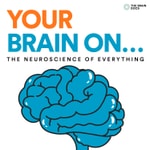The Friederike Fabritius Show – Détails, épisodes et analyse
Détails du podcast
Informations techniques et générales issues du flux RSS du podcast.

The Friederike Fabritius Show
Friederike Fabritius
Fréquence : 1 épisode/7j. Total Éps: 27

Classements récents
Dernières positions dans les classements Apple Podcasts et Spotify.
Apple Podcasts
🇫🇷 France - management
18/07/2025#79🇫🇷 France - management
17/07/2025#57🇫🇷 France - management
16/07/2025#43🇫🇷 France - management
15/07/2025#20🇩🇪 Allemagne - management
01/07/2025#66🇩🇪 Allemagne - management
29/06/2025#67🇩🇪 Allemagne - management
26/06/2025#72🇩🇪 Allemagne - management
15/05/2025#73🇩🇪 Allemagne - management
13/05/2025#100🇩🇪 Allemagne - management
04/05/2025#77
Spotify
Aucun classement récent disponible
Liens partagés entre épisodes et podcasts
Liens présents dans les descriptions d'épisodes et autres podcasts les utilisant également.
See all- https://www.johnratey.com/
8 partages
- https://www.facebook.com/MoleculeOfMore
6 partages
Qualité et score du flux RSS
Évaluation technique de la qualité et de la structure du flux RSS.
See allScore global : 68%
Historique des publications
Répartition mensuelle des publications d'épisodes au fil des années.
Mastering New Year's Resolutions: Brain Insights for Success
Saison 1 · Épisode 1
dimanche 12 janvier 2025 • Durée 14:04
In the very first episode of her podcast, Friederike Fabritius discusses the neuroscience behind why 92% of New Year's resolutions fail. The episode digs into three core reasons: the brain's tendency to conserve energy, its immature prefrontal cortex, and its focus on short-term rewards. Friederike provides practical advice on setting realistic, emotionally meaningful goals that slightly challenge the brain. Emphasizing the importance of self-efficacy, she aims to help listeners choose sustainable goals and improve their habit-forming strategies.
00:00 Introduction to the Podcast
00:46 Understanding Why Resolutions Fail
01:34 The Lazy Brain: Neuroscience Insights
05:12 Setting Realistic Goals
08:53 The Importance of Emotional Relevance
13:43 Conclusion and Next Steps
Follow Friederike on LinkedIn to stay connected and up to date on her neurohacks.
And if you're looking for more brain-friendly insights be sure to subscribe to The Brain-Friendly Newsletter.
Building Habits that Stick: Applicable Neurohacks For Getting Started
Saison 1 · Épisode 2
lundi 20 janvier 2025 • Durée 14:49
In the second episode, Friederike dives into the psychological and emotional aspects of habit change. The discussion covers the elements of habits—triggers, routines, and rewards—providing practical advice on creating effective triggers and manageable routines, as well as emphasizing the importance of starting immediately. Friederike highlights the need for rewarding oneself and integrating small wins for sustained motivation. Neuroscientific insights underscore why simple inhibition of undesirable behaviors and relying on willpower alone is inefficient. The episode concludes with tips on optimizing energy levels for initiating new habits.
00:00 Introduction to Habit Change
00:31 Understanding Procrastination
01:22 The Anatomy of a Habit
02:18 Identifying and Controlling Triggers
03:58 Creating a Manageable Routine
05:21 The Importance of Rewards
08:14 Replacing Old Habits
10:43 The Power of Visualization
13:20 Final Tips and Conclusion
Follow Friederike on LinkedIn to stay connected and up to date on her neurohacks.
And if you're looking for more brain-friendly insights be sure to subscribe to The Brain-Friendly Newsletter.
Staying on Track: The Neuroscience of Habit Change
Saison 1 · Épisode 3
lundi 27 janvier 2025 • Durée 14:35
In the third episode of The Friederike Fabritius Show, Friederike offers science-based strategies for maintaining motivation and staying on track with personal goals. She emphasizes the importance of implementation intentions, advocating for specific 'if-then' statements to create clear triggers for actions. She discusses the role of a supportive social environment, the risks of setting too many goals simultaneously, and the concept of keystone habits that positively influence multiple aspects of life. Friederike rounds out the episode ends by sharing her Fun, Fear, and Focus© framework as a way to stay on track and boost neuroplasticity - helping you reach your fullest potential.
00:00 Introduction to Staying on Track
00:56 Understanding Implementation Intentions
03:48 The Importance of Social Support
06:12 Avoiding Overwhelm: Focus on One Goal
07:29 Keystone Habits: The Power of Exercise
08:44 Simplifying Routines for Success
10:11 Training Your Willpower
12:44 Conclusion: Fun, Fear, and Focus©
Follow Friederike on LinkedIn to stay connected and up to date on her neurohacks.
And if you're looking for more brain-friendly insights be sure to subscribe to The Brain-Friendly Newsletter.
The Hidden Dangers of Alcohol - Why There Is No Safe Limit
Saison 1 · Épisode 4
lundi 3 février 2025 • Durée 14:09
In this episode, the Friederike explores the surprising negative effects of alcohol on the brain and body, despite its social normalization. She discusses how alcohol kills brain cells, disrupts the gut microbiome, weakens the prefrontal cortex, and impairs memory and learning ability. The episode highlights the long-term consequences of drinking, such as increased stress, poor sleep quality, and higher cancer risk, while also offering practical tips for mitigating some of these negative effects. Ultimately, Friederike stresses the importance of informed choices when it comes to alcohol intake, and shares the potential for brain recovery by reducing or eliminating it altogether.
00:00 Introduction: The Impact of Alcohol on the Brain
00:41 The Misconceptions About Alcohol
01:29 Short-Term Effects of Alcohol
04:39 Long-Term Effects of Alcohol
11:17 Practical Tips to Mitigate Alcohol's Impact
12:46 Conclusion: Reversing the Effects of Alcohol
Follow Friederike on LinkedIn to stay connected and up to date on her neurohacks.
And if you're looking for more brain-friendly insights be sure to subscribe to The Brain-Friendly Newsletter.
The Truth About Relationships - Fail Fast or Fail Forever
Saison 1 · Épisode 5
lundi 10 février 2025 • Durée 09:25
Friederike shares essential tips for both singles and those in relationships, stressing the importance of failing fast when a partner is unsuitable and trusting one's gut feelings. The discussion covers why individuals should avoid trying to change their partners and highlights the significance of finding similarities for long-term success. Friederike stresses the necessity of personal self-esteem work to prevent recurring unhealthy patterns in relationships. She explains the importance of prioritizing and showing daily appreciation to one's partner for a lasting, fulfilling relationship.
00:00 Introduction
00:35 The Number One Mistake in Relationships
02:03 Fail Fast
03:12 Trust Your Intuition
04:22 Work on Your Self-Esteem
05:20 Don't Try to Change Your Partner
06:12 The Importance of Similarity
07:43 Prioritizing Your Partner
09:07 Conclusion
Follow Friederike on LinkedIn to stay connected and up to date on her neurohacks.
And if you're looking for more brain-friendly insights be sure to subscribe to The Brain-Friendly Newsletter.
Brain Diversity: Embracing Introversion and Extroversion
Saison 1 · Épisode 6
lundi 17 février 2025 • Durée 13:12
Friederike Fabritius brings her expertise to the topic of introversion, providing insights valuable to introverts and extroverts alike. She discusses the neuroscience behind introversion and extroversion, society's bias towards extroverts, and practical tips for creating an inclusive workplace. Key points include the unique strengths of introverts, such as intrinsic motivation, resistance to groupthink, and deep intellectual engagement. She shares applicable strategies to make work environments more introvert-friendly - a benefit to both introverts and extroverts.
00:51 Understanding Introversion and Extroversion
02:18 The Strengths of Introverts
04:04 Brain Differences Between Introverts and Extroverts
05:22 Insights on Introversion
07:21 Creating an Introvert-Friendly Workplace
09:50 Practical Tips
12:24 The Importance of Silence and Solitude
Follow Friederike on LinkedIn to stay connected and up to date on her neurohacks.
And if you're looking for more brain-friendly insights be sure to subscribe to The Brain-Friendly Newsletter.
Friederike Fabritius on Gender Diversity in the Workplace
Saison 1 · Épisode 8
lundi 3 mars 2025 • Durée 13:09
Don’t Change the Women, Change the Workplace.
Rethinking Workplace Diversity to Include Neurosignature Diversity.
In this episode, Friederike discusses the issues with traditional diversity initiatives like anti-bias training, which often do not yield meaningful results. She shares an alternative approach focused on neurosignature diversity, highlighting the importance of considering differences in personality, skills, and strengths (which are shaped by one's neurosignature) rather than just gender. By creating policies that respect these differences, such as fostering autonomy, creating flexible work environments, and focusing on outcome culture, workplaces can become more inclusive and benefit from a wider talent pool. This, she argues, would ultimately lead to more diverse leadership and better organizational performance overall, as a brain-friendly workplace benefits everyone.
00:00 Introduction
00:09 Why Current Diversity Efforts Are Failing
02:04 Neurosignature Diversity
04:55 Understanding Different Neurosignatures
08:32 Creating a Brain-Friendly Workplace
12:49 Conclusion and Final Thoughts
Follow Friederike on LinkedIn to stay connected and up to date on her neurohacks.
And if you're looking for more brain-friendly insights be sure to subscribe to The Brain-Friendly Newsletter.
Friederike Fabritius on The Secret to Great Feedback
Saison 1 · Épisode 7
lundi 24 février 2025 • Durée 13:03
Not All Feedback Is Created Equal
In this episode, Friederike Fabritius shares her insight about the effective ways of giving and receiving feedback. She drives home the importance of intention when it comes to feedback by using real-world examples. Key points include understanding the giver's intentions, delivering bad news quickly and honestly, avoiding the 'feedback sandwich', and ensuring feedback is timely. Friederike introduces the EECC framework (Example, Effect, Change, Continue) as an effective guide for providing better feedback.
00:00 Introduction to Effective Feedback
00:17 When To Ignore Feedback
03:08 Understanding Intentions
04:29 Delivering Negative Feedback Effectively
06:43 The Problem with the Feedback Sandwich
07:47 Why Timing is Important
08:45 Balancing Positive and Negative Experiences
11:07 The EECC Feedback Framework
12:09 Recap and Final Thoughts
Follow Friederike on LinkedIn to stay connected and up to date on her neurohacks.
And if you're looking for more brain-friendly insights be sure to subscribe to The Brain-Friendly Newsletter.
Can You Have Too Much of a Good Thing? Dopamine Decoded with Friederike Fabritius and Peter Sterling
Saison 1 · Épisode 14
lundi 14 avril 2025 • Durée 14:20
Chasing Rewards: The Role of Dopamine in Happiness and Health with Prof. Peter Sterling
Professor Peter Sterling, author of 'What Is Health?', joins Friederike for the second time to explore the effects of dopamine on the brain. They discuss how we are hardwired to seek out rewards, and those little bursts of dopamine are so crucial for our happiness and health. The conversation explores how drugs, alcohol, video games, and even pornography can mess with our brain's dopamine system, making everyday joys seem less exciting. Peter shares why it's better to focus on simple, natural pleasures and real social connections instead of chasing big dopamine hits via artificial means. He also shares his experience with ADHD and how the current way of treating it may be ineffective.The episode concludes with Peter sharing his tips on how to get your dopamine levels back in balance by being honest with yourself and reaching out to others.
00:00 Introduction
00:37 The Basics of Dopamine
01:46 Dopamine and Daily Life
04:28 Artificial Dopamine Boosters and Their Effects
05:30 The Impact of Modern Stimuli on Dopamine
09:07 ADHD and Dopamine: A Deeper Look
12:27 Dopamine Detox and Rebalancing
13:30 Conclusion and Final Thoughts
Peter Sterling is an American anatomist, physiologist and neuroscientist, and Professor of Neuroscience at the University of Pennsylvania School of Medicine. He is the author of What Is Health? Allostasis and the Evolution of Human Design (2020), and with Simon Laughlin, is an author of Principles of Neural Design.
Follow Friederike on LinkedIn to stay connected and up to date on her neurohacks.
And if you're looking for more brain-friendly insights be sure to subscribe to The Brain-Friendly Newsletter.
Redefining What It Means to be Healthy and Balanced: Allostasis Explained by Friederike Fabritius and Peter Sterling
Saison 1 · Épisode 13
lundi 7 avril 2025 • Durée 14:03
Understanding Allostasis and Social Impact on Health with Prof. Peter Sterling
In today’s episode Friederike interviews Professor Peter Sterling, author of 'What Is Health,' to discuss his groundbreaking concept of allostasis. Peter's extensive experience in neuroscience and with socioeconomically challenged communities gave him insight on the ways that chronic social tension and stress play a significant role in conditions like hypertension (high blood pressure). The pair examine how Peter came to discover and name allostasis, the limitations of the traditional medical model of homeostasis, and the predictive and adaptive nature of our bodies in response to emotional and social cues. Peter shares practical ways to incorporate the principles of allostasis into daily life to improve health and well-being, stressing the importance of social connections and adaptive regulation and why adapting to stress is not necessarily a good thing.
00:00 Introduction
00:54 Discovering Allostasis
02:04 Hypertension and Social Tension
05:38 Challenging Homeostasis: A New Perspective
12:27 Applying Allostasis for a Better Life
14:36 Conclusion and Final Thoughts
Follow Friederike on LinkedIn to stay connected and up to date on her neurohacks.
And if you're looking for more brain-friendly insights be sure to subscribe to The Brain-Friendly Newsletter.
Peter Sterling is an American anatomist, physiologist and neuroscientist, and Professor of Neuroscience at the University of Pennsylvania School of Medicine. He is the author of What Is Health? Allostasis and the Evolution of Human Design (2020), and with Simon Laughlin, is an author of Principles of Neural Design.






